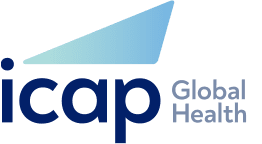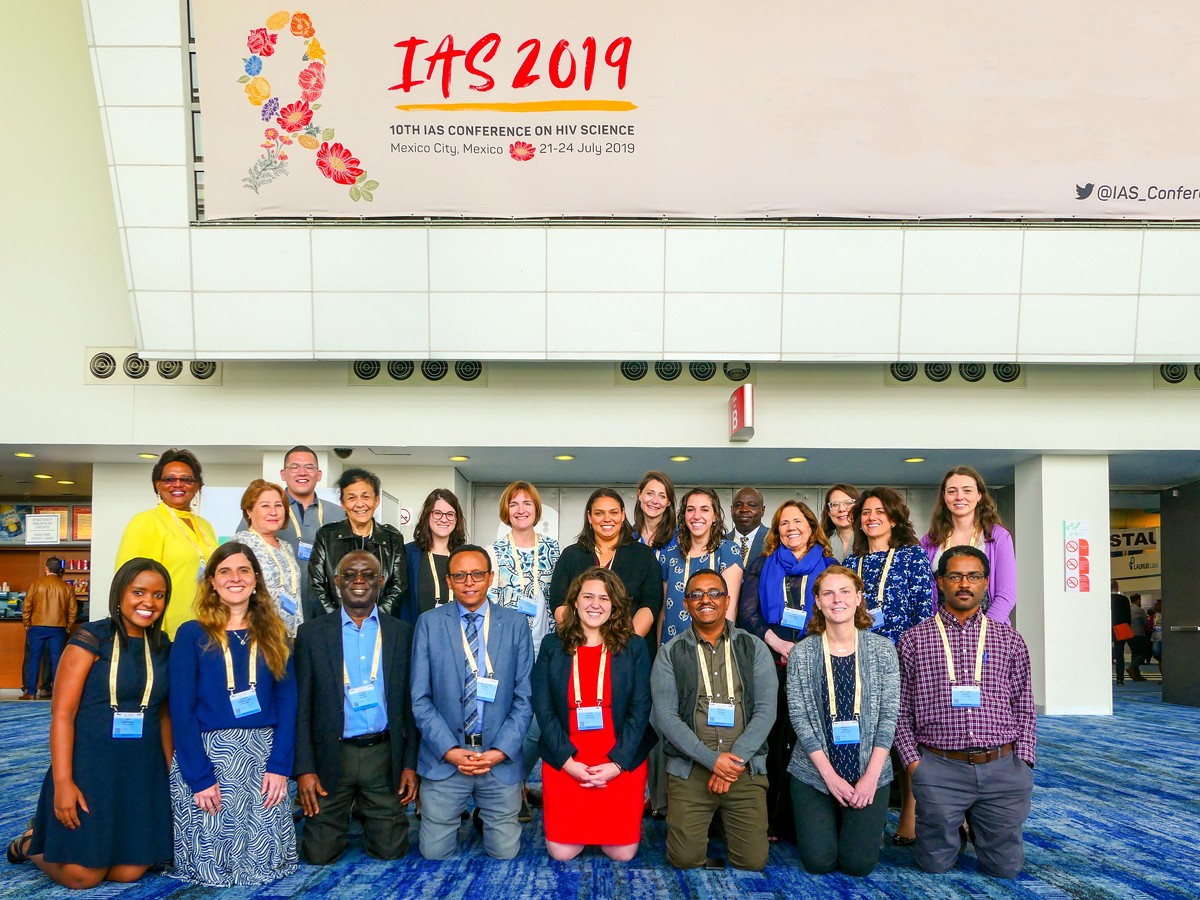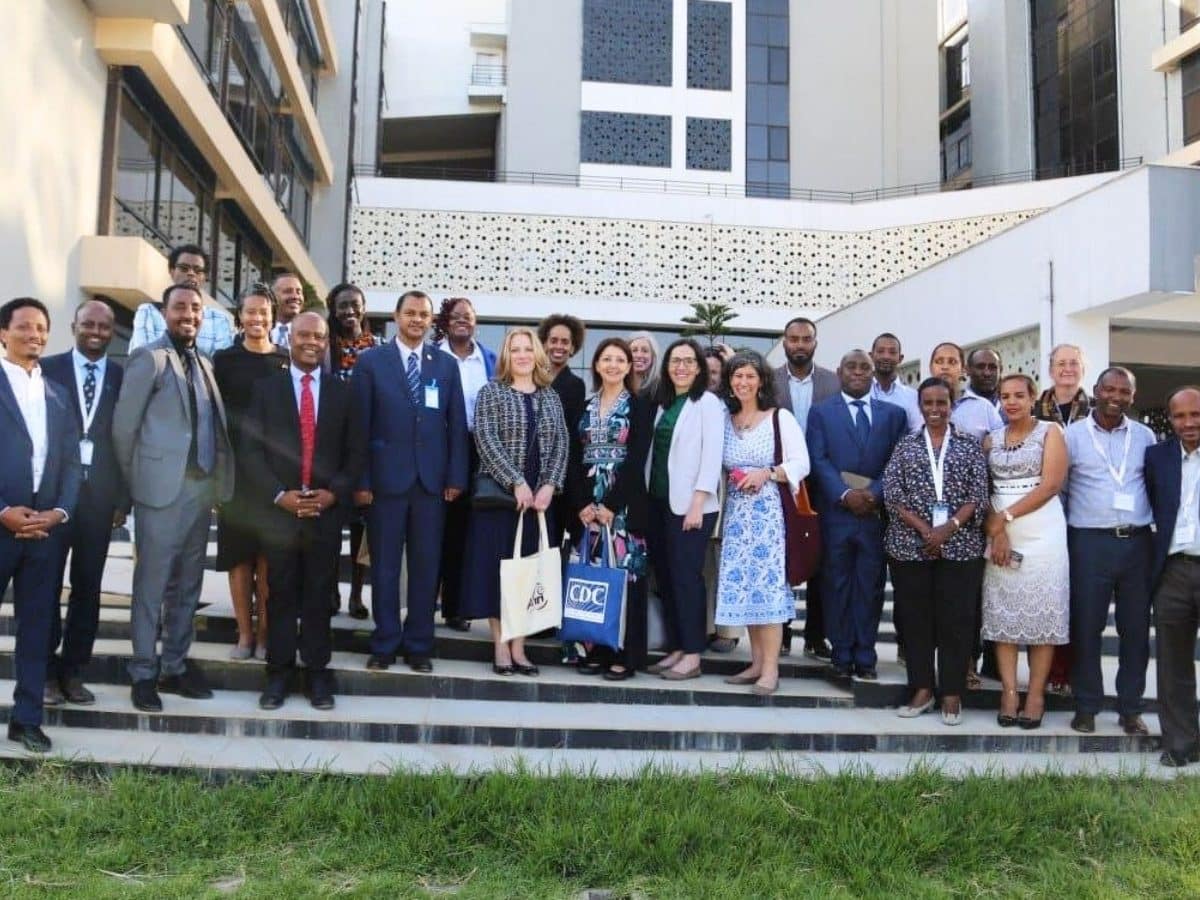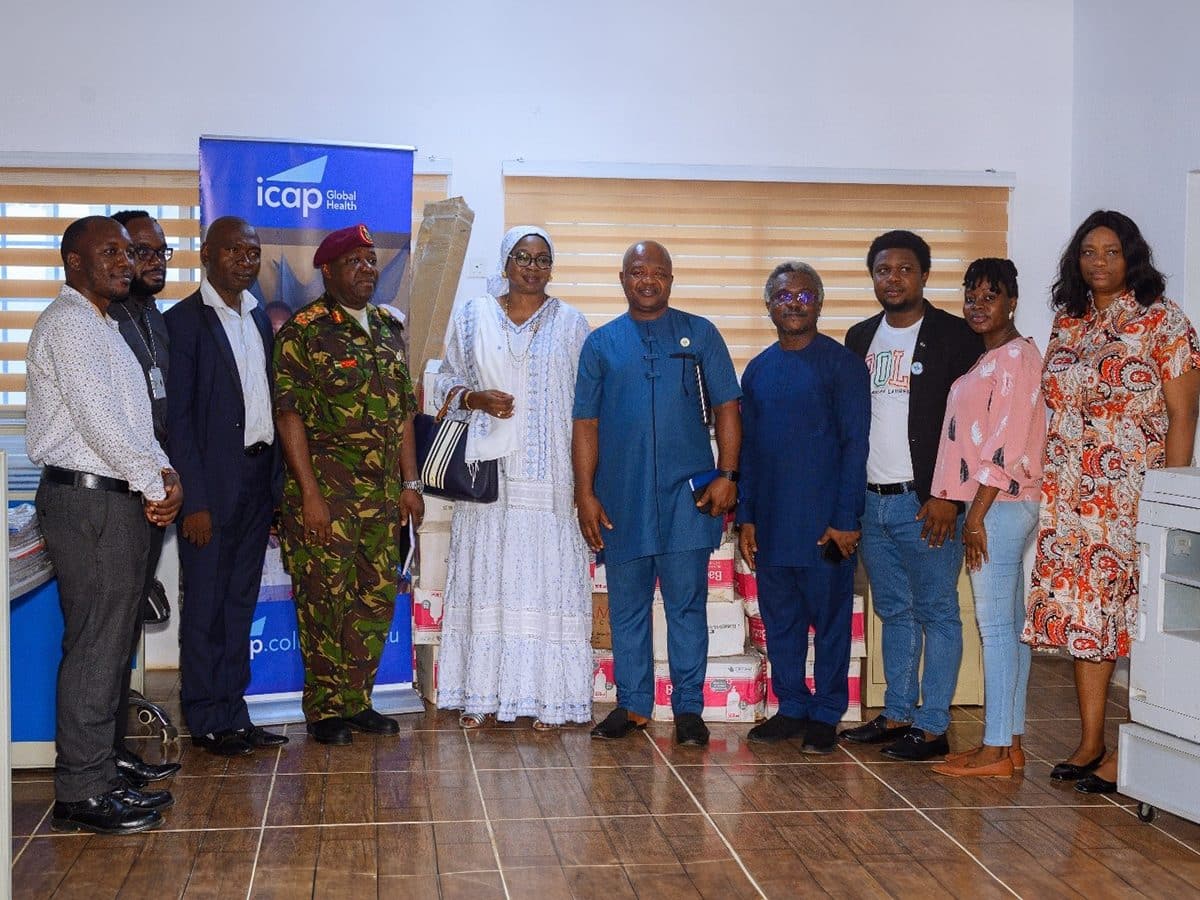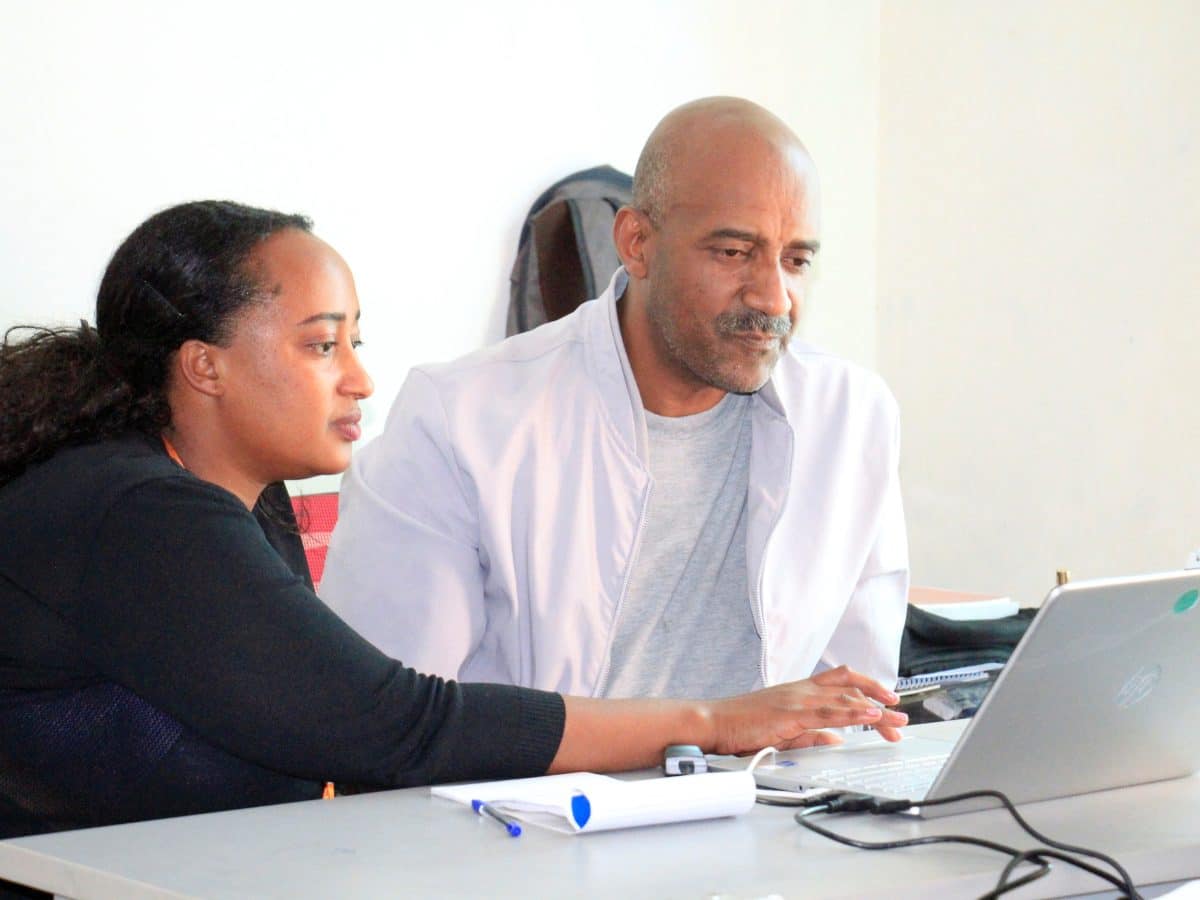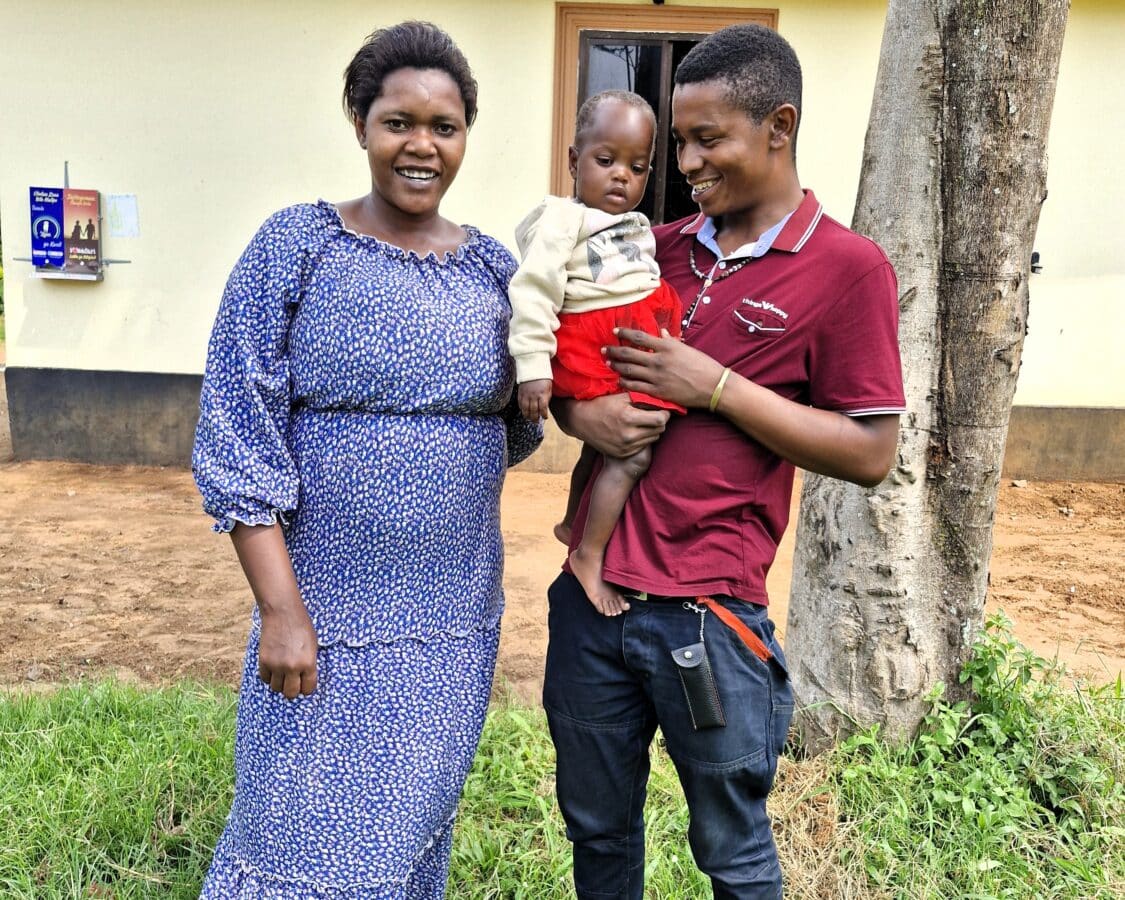Improving linkage to care, reducing barriers, and accelerating HIV epidemic control were major themes for ICAP at the 10th International AIDS Society (IAS) Conference on HIV Science held from July 21-24 in Mexico City.
During the four-day conference, ICAP organized several satellite sessions and presented more than a dozen scientific posters highlighting ICAP’s work around the world. One abstract, “Optimizing treatment models for people living with HIV in urban Zimbabwe,” received the prestigious IAS/MSD Prize for operational and implementation research in differentiated service delivery.
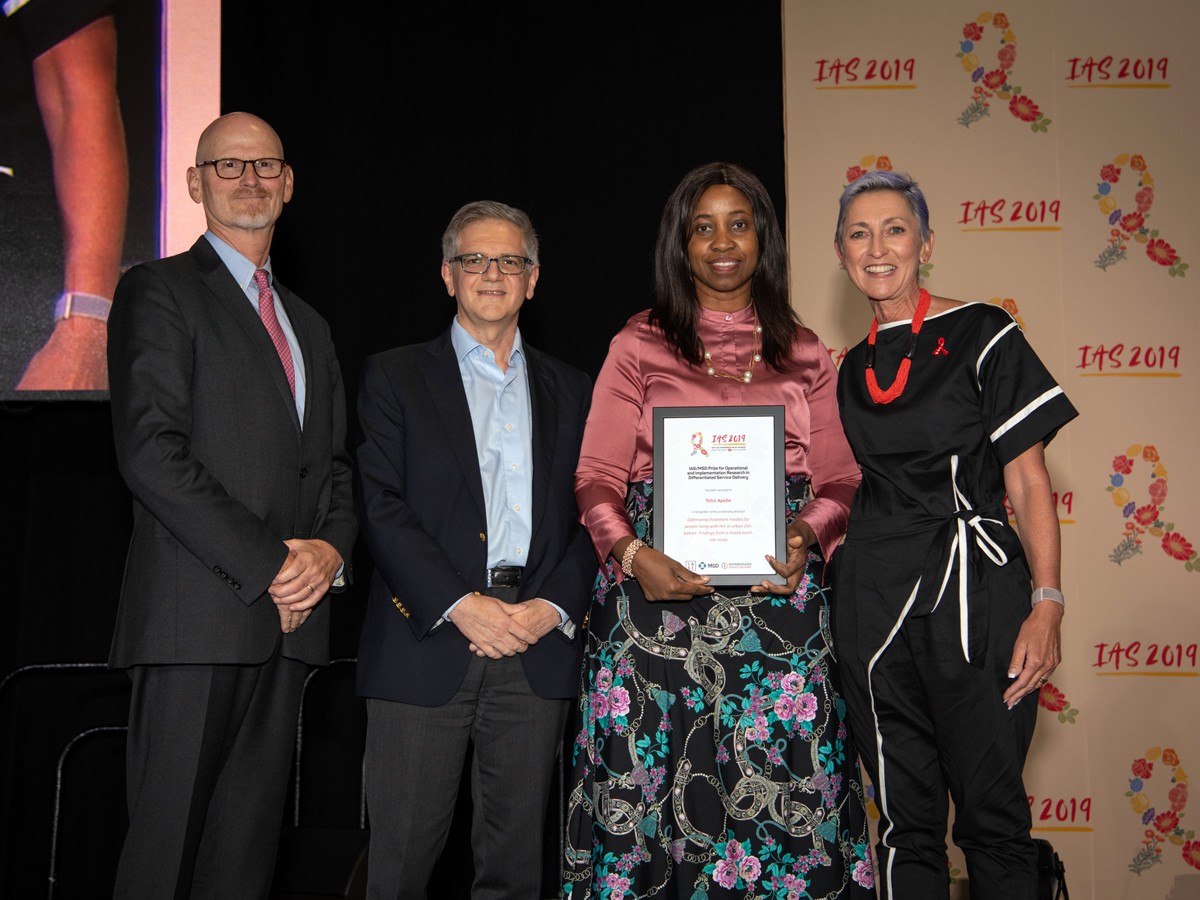
ICAP organized two satellite sessions to showcase the work of the CQUIN Learning Network: one focused on how differentiated service delivery (DSD) could enhance the quality of care for patients with advanced HIV disease, and the other explored the use of DSD in support of tuberculosis (TB) preventive therapy. At the satellite on DSD for HIV/TB, CQUIN advisory committee member Cordelia Katureebe, MBChB, national coordinator for HIV care and treatment for the Uganda Ministry of Health, spoke about Uganda’s efforts to integrate DSD into national guidelines and support for health care workers to improve TB preventive therapy (TPT) for people living with HIV.
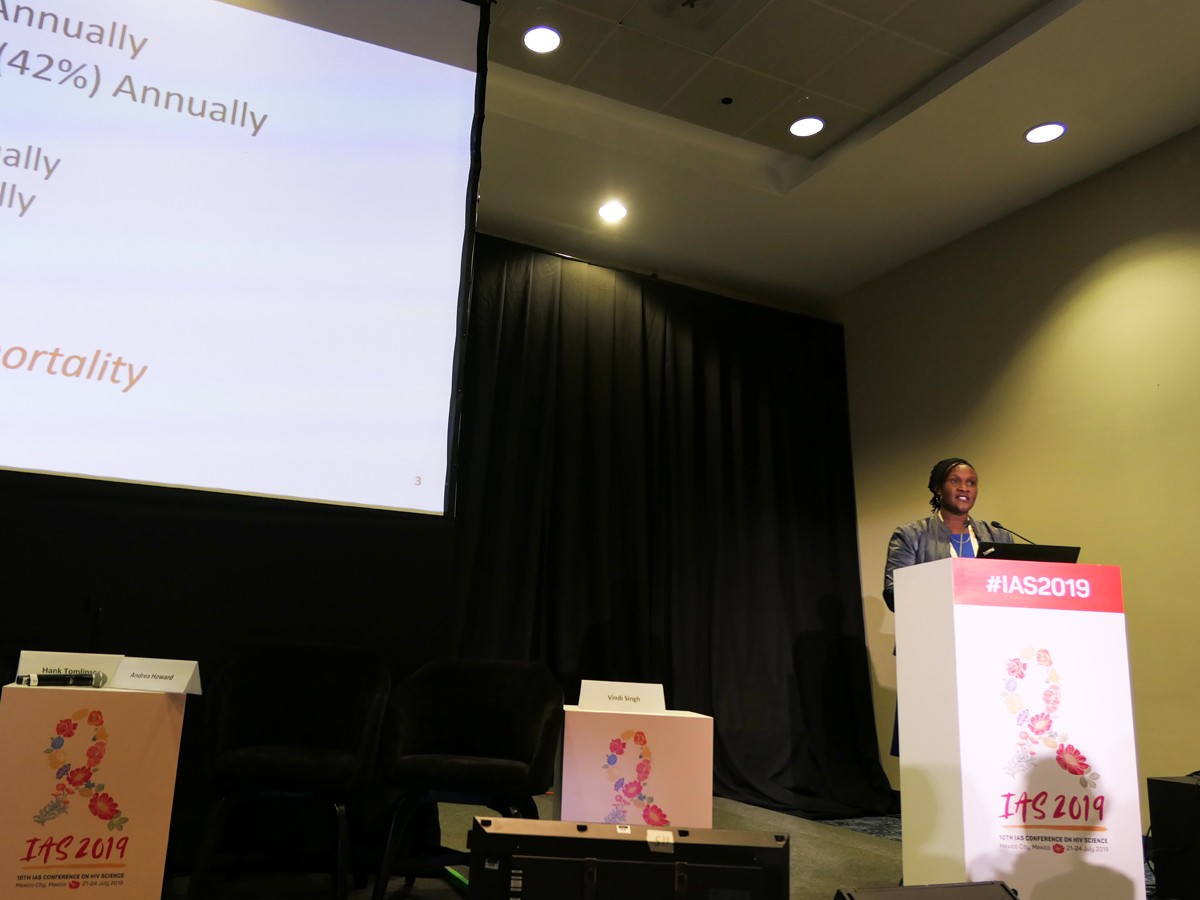
“First, as a national program, we’ve instituted a Quality Improvement Collaborative to support frontline workers in starting people living with HIV on TPT,” Katureebe said. “Secondly, we have just started a 100-day acceleration plan to initiate TPT among at least 50 percent of those eligible, which translates to around 300,000 recipients of care. This is quite ambitious, but in the last two weeks we saw over 50,000 people being put on TPT!”
At the satellite session on eliminating HIV-related stigma and discrimination, organized by the U.S. Centers for Disease Control (CDC) and facilitated by ICAP, ICAP project lead Cassia Wells, MD, MPH, MA, presented results from a stigma and discrimination survey completed by implementers from various U.S. government agencies funded by the President’s Emergency Plan for AIDS Relief (PEPFAR). In her opening remarks, Ambassador Birx thanked ICAP and CDC for assembling the data and noted the necessity of reducing stigma and discrimination as a major barrier to care, especially for key populations.
“If you look at improvement in HIV incidence or mortality, all the lines are going down except in regions that have key population epidemics—illustrating that our deepest problem still is access,” Birx said.
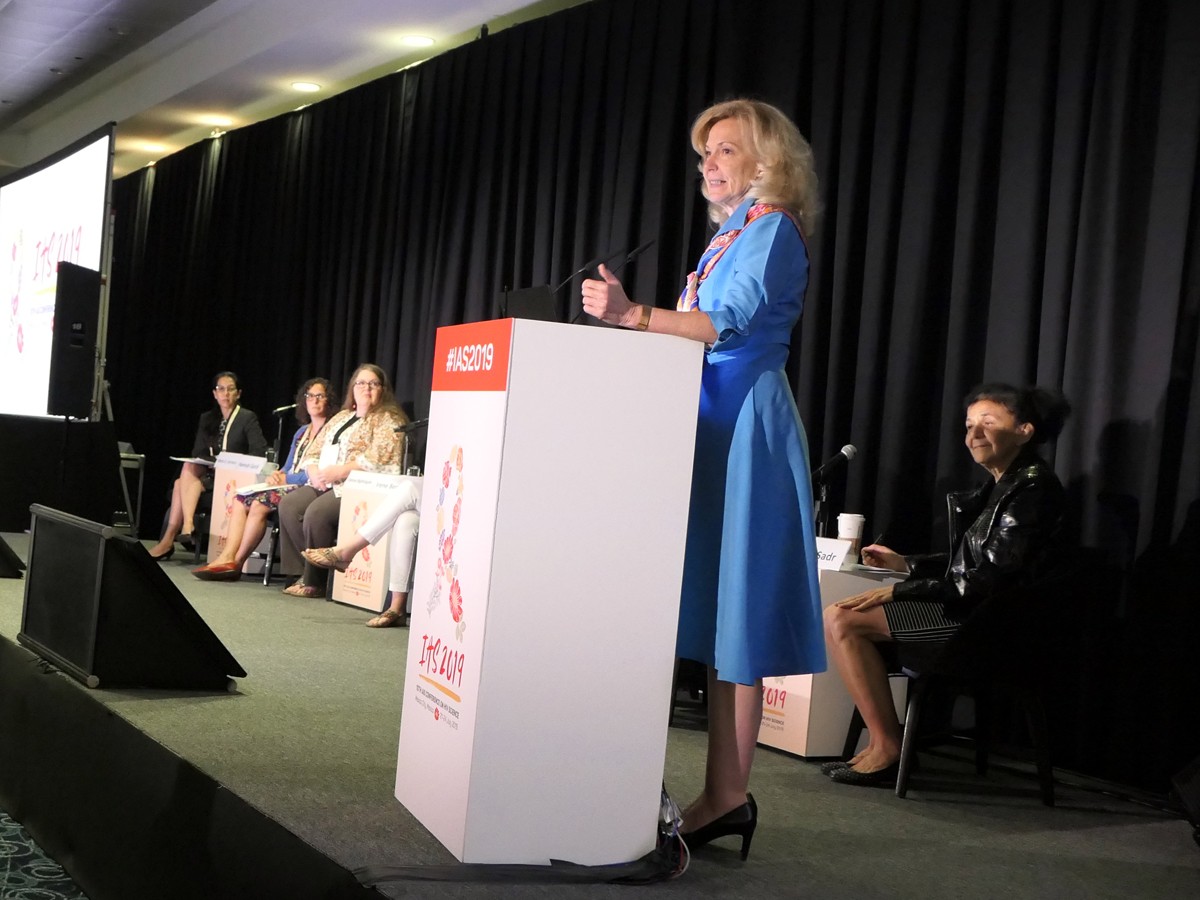
A satellite session co-organized by ICAP and the University of California, San Francisco, provided an update on the TRACE (Tracking with Recency Assays to Control the Epidemic) project, a program funded by PEPFAR that provides technical assistance to support the roll-out of HIV recency testing and recency surveillance systems in selected countries, as part of a comprehensive response to the HIV epidemic.
“The new point-of-care recency test is very exciting because it provides an opportunity to improve the health of people living with HIV, and at the same time advance public health efforts towards epidemic control,” said Jessica Justman, MD, ICAP’s senior technical director and ICAP principal investigator of the TRACE project.
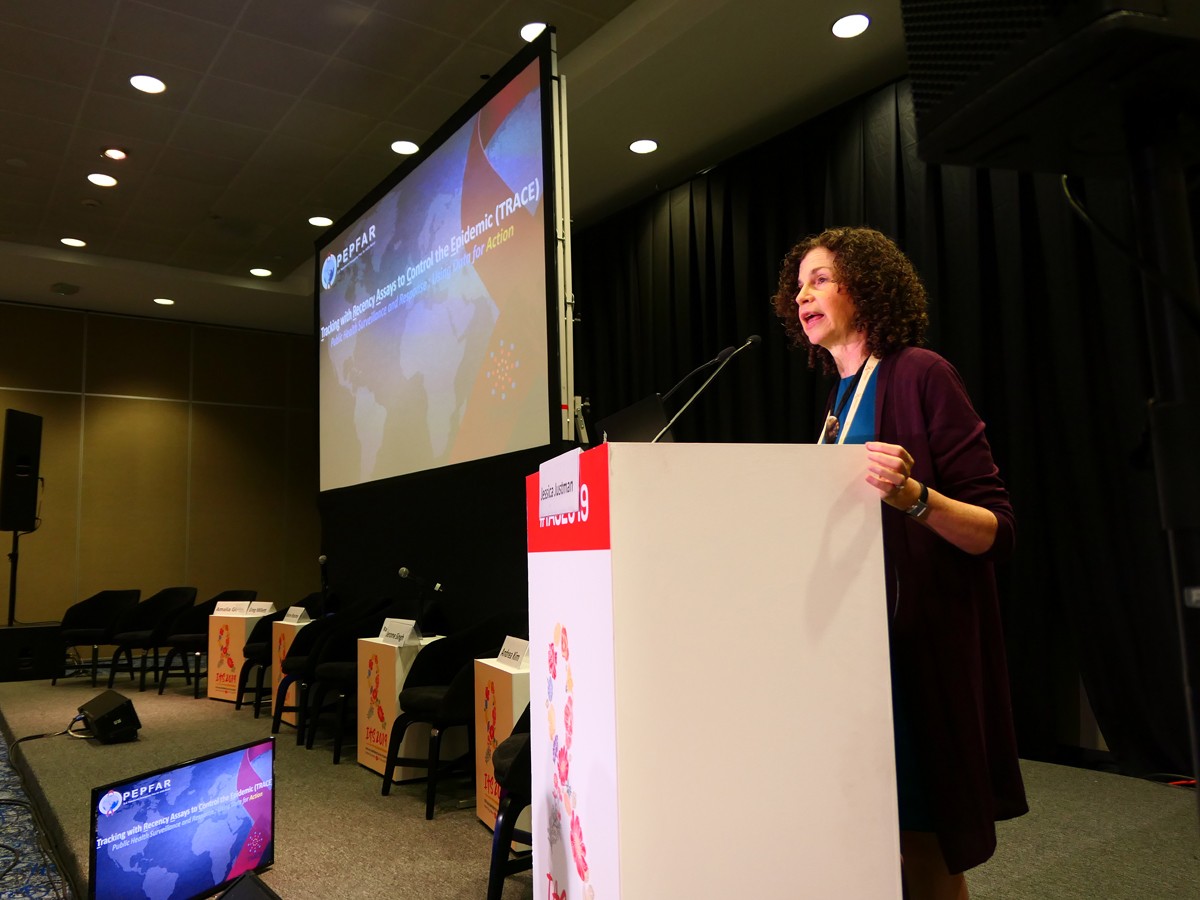
ICAP staff participated in a number of other satellite sessions, including a discussion of targets for the year 2025 in the global AIDS response, the first year of implementation following updated World Health Organization guidelines on first-line treatment for people living with HIV, the launch of the Start Free Stay Free AIDS Free report for 2019, and a session on “sticky linkage” to HIV care where ICAP highlighted its “I-Surge” approach to enhance linkage and ART initiation.
In addition to ICAP posters and presentations the IAS conference itself, ICAP’s Andrea Howard, MD, MS, director of ICAP’s clinical and training unit, presented on TB prevention in HIV-associated TB at the IAS TB/HIV pre-conference symposium on July 20. At the same meeting, Peter Preko, MBChB, MPH, CQUIN program director, presented on field experiences with DSD implementation at a session on scaling up TB preventive treatment among people living with HIV.
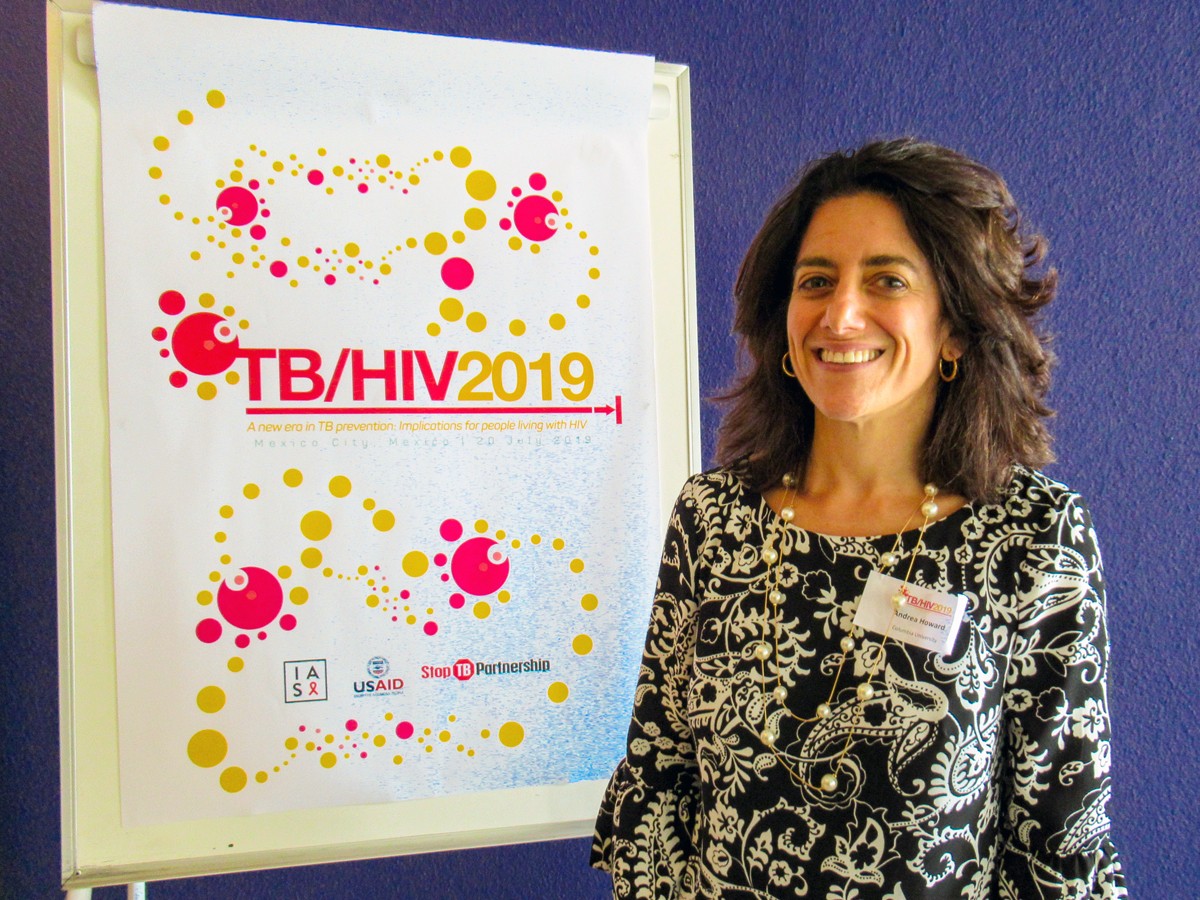
At the 11th International Workshop on HIV Pediatrics on July 19-20, for which ICAP’s senior research director, Elaine J. Abrams, MD, serves on the organizing committee, ICAP’s Suzue Saito, PhD, MIA, MA, project director for TRACE and lead strategic information advisor for the PHIA (Population-based HIV Impact Assessment) project, presented data from PHIA surveys on the overall burden of pediatric HIV and the progress toward the UNAIDS 90-90-90 targets for children living with HIV. ICAP also presented two posters on work in the Manzini Region of Eswatini and one on early infant diagnosis in Mozambique.
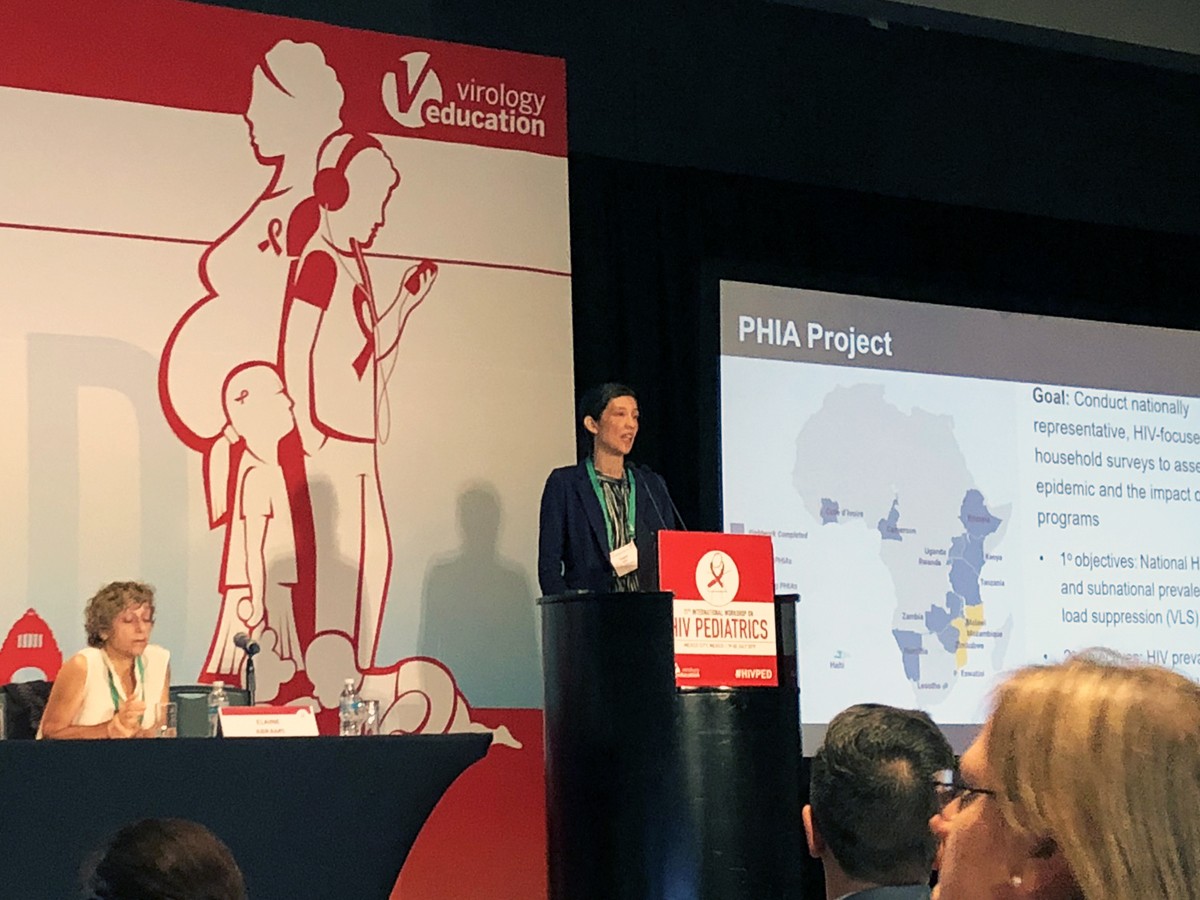
“The IAS Conference provided an opportunity to share experiences with others from around the world on ways to inform the design and implementation of interventions and programs to advance progress towards control of the HIV epidemic,” said Wafaa El-Sadr, MD, MPH, MPA, ICAP’s global director.
The full listings for ICAP posters and presentations at IAS and the pediatrics workshop are online. IAS listings include links to session details on the IAS website, which may feature slides and audio or video recordings.
To find the latest ICAP research, click “Publications” on the Tools & Resources section of ICAP’s website.
A global health leader since 2003, ICAP was founded at Columbia University with one overarching goal: to improve the health of families and communities. Together with its partners—ministries of health, large multilaterals, health care providers, and patients—ICAP strives for a world where health is available to all. To date, ICAP has addressed major public health challenges and the needs of local health systems through 6,000 sites across more than 30 countries. For more information about ICAP, visit: icap.columbia.edu

